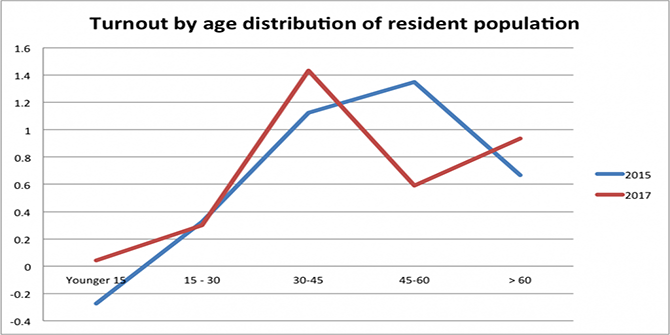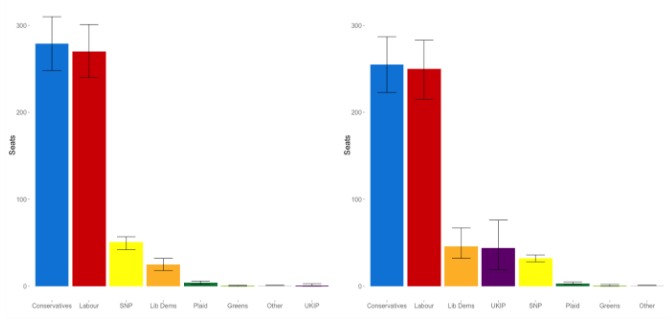 David Cameron has announced that he will not seek a third-term, although nobody was asking and it seems unlikely at the moment that he will get a second term. In this article, Ben Worthy looks at some possibilities for why he made the announcement.
David Cameron has announced that he will not seek a third-term, although nobody was asking and it seems unlikely at the moment that he will get a second term. In this article, Ben Worthy looks at some possibilities for why he made the announcement.
David Cameron announced – at the end of his first term as Prime Minister – that he would not serve a third term. He said in a BBC interview that ‘terms are like Shredded Wheat: two are wonderful but three too many’(see here for the full interview). Alex Massie from The Spectator summed up the confusion:
No, I don’t know why David Cameron would amputate his authority before he runs for re-election either. But that’s what he has done today by ruling out running for a third term in office. What a bizarre thing to do, not least because no-one expected him to run again in 2020 even if, by some good fortune, he returns to Downing Street on May 8th.
Drilling down into this, there are three causes for bafflement:
1. No one seemed to be asking Cameron and he appears to be under no pressure to announce his departure, as a number of commentators have said. Deciding when and how you go is one of the few powers that a Prime Minister can cling on to, if they can possibly hang on to it. The last leader to really do it was Harold Wilson with his shock announcement in 1976.
2. It’s unlikely he’ll get a second term, never mind a third. He appears to be displaying a rather ‘sunny optimism’ over whether he will still be in Downing Street on May the 8th, never mind 2020. Even were he to win (or not lose) in some form, there are a series of scenarios whereby Cameron may not survive. As some have pointed out Cameron didn’t win in 2010 so speculating on his future victories seemed overly ambitious, to say the least.
3. Giving a precise date creates more trouble than it’s worth. As Michael Crick put it: ‘Tony Blair (in 2004) & Sir Alex Ferguson (in 2001) found putting a time limit on your term of office severely undermines your authority’. Our paper here examined how Blair’s promise to leave in 2004 was a sign of weakness. His hope of using his ‘promise’ as a breathing space to push his personal agendas fell flat. His enemies scented weakness and his challenger became even more powerful. In fact, giving a firm date didn’t put his enemies off but made them try and move the date nearer. Announcing you are going breaks a spell, empowers your enemies and makes you a lame duck. Blair only really made progress on issues like international aid that Brown wanted to happen anyway.
So why did he do it?
Here are three possibilities:
1. Cameron didn’t mean to say it: he was, as Prime Ministers are wont to do, speculating on his status and position. Cameron isn’t always careful with his speculations, as his supposed indiscretions about the Queen ‘purring’ down the phone to him after the Scottish Independence referendum showed (though I’m not convinced that even this was a mistake).
2. He is making political space: perhaps he was trying, like Tony Blair, to carve a space to do things he wants to do before he goes. Blair did this very much under great pressure from a challenger. Is Cameron under some pressure or threat we don’t know about? Interestingly, he did also mention his commitment to future education reforms and clearly asserted he was only ‘half done’ – was he asking or playing for time?
3. He is signalling his intent: it may be Cameron is trying to display a confidence to his supporters and challengers. There has been rumours this weekend about Cameron’s post-election safety. His comment is ‘signalling’ to those who will hear that he thinks he can win and is looking to his future. It’s a kind of messy and watered-down equivalent of Thatcher’s famous pledge in 1987 to ‘go on and on’.
Cameron’s new ‘shredded wheat’ analogy has definitely added something to the folk lexicon of leaders. You could respond by pointing out, of course, that it depends how hungry you are and the size of the bowl. In the meantime, he should perhaps meditate on Lyndon Johnson’s advice for politicians: ‘learn how to count’.
Note: This article gives the views of the author, and not the position of the British Politics and Policy blog, nor of the London School of Economics. Please read our comments policy before posting.
 Ben Worthy is a Lecturer in Politics at Birkbeck College, University of London and co-creator of the measuring leadership blog. You can see his research on this SSRN Author page and his research blog http://opendatastudy.wordpress.com. He tweets from @BenWorthy1
Ben Worthy is a Lecturer in Politics at Birkbeck College, University of London and co-creator of the measuring leadership blog. You can see his research on this SSRN Author page and his research blog http://opendatastudy.wordpress.com. He tweets from @BenWorthy1







